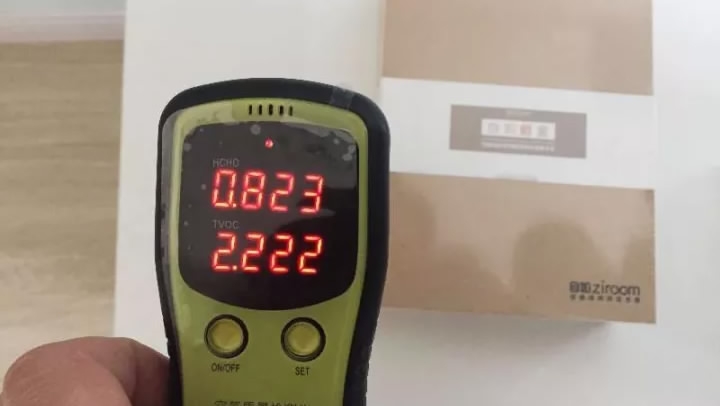
China
22:51, 12-Dec-2017
Leading Chinese real estate agency leasing rooms with high levels of toxic chemical
CGTN

Ziroom, a Chinese app for long-term rentals of furnished apartments, has been accused of leasing spaces unfit for habitation, after a 20-year-old girl discovered that the levels of a potentially carcinogenic chemical off-gassed by paints and varnishes are beyond acceptable ranges.
Zhang Jiajia moved from the northeastern province of Liaoning to Beijing last month after landing an internship in the Chinese capital. Wanting an apartment, she contacted the country's leading real estate agency Lianjia, which operates Ziroom, for possible options.
She settled on a room at a house close to her work, which the agent told her was just renovated.
"The agent told me the room was rented out for the first time and had been decorated recently,” Zhang told Beijing News. "I had a sore throat on the first day I moved in".
Zhang thought it was just a cold, and didn't think it could be an indication of something more serious.
Her self-diagnosis was too optimistic. She was eventually diagnosed with upper respirator tract infection two weeks after settling down at her new place.
Zhang’s doctor told her to be alert about formaldehyde, a colorless but toxic chemical sometimes found in paint. It can irritate the skin, eyes, nose, and throat, cause asthma, bronchitis — or even cancer.
Zhang's roommate, Wang Lin, purchased a gas detector to get to the bottom of the problem. What she discovered made her gasp.
According to the national standard, indoor formaldehyde rates should not exceed 0.1mg/m³, but Zhang and Wang’s rooms had three times the permissible limit.

Zhang Jiajia in her room. /Photo via Beijing News
Zhang Jiajia in her room. /Photo via Beijing News
This is not the first time someone comes forward with serious complaints about rooms leased by Ziroom.
Since mid-November, journalists have visited several rented houses in different apartments operated by Ziroom, only to find excessive levels of formaldehyde. There are also many complaints about the poisonous chemical on social media like China's Twitter-like Weibo and Zhihu, the Chinese equivalent of Quora.
A Ziroom spokesman said the company would assume its responsibility and help tenants solve the problem by providing green plants to purify the air, offering to switch apartments for free, and adopting stricter testing standards.
Compensations and air cleaners were also offered for the two tenants.
Neither Zhang nor Wang decided to move out, maintaining it would be time consuming and arduous, according to Beijing News.
Rising demand for apartments over the past years has seen tenants forced into paying more for less, and many feel they have limited recourse when things go wrong.
According to a survey reported by Xinhua earlier this year, three-quarters of young tenants in Beijing believed their legal rights had been infringed upon in the past, with many claiming they had fallen victim to fake apartment listings, unfair commissions, or landlords increasing rental fees without warning.

SITEMAP
Copyright © 2018 CGTN. Beijing ICP prepared NO.16065310-3
Copyright © 2018 CGTN. Beijing ICP prepared NO.16065310-3